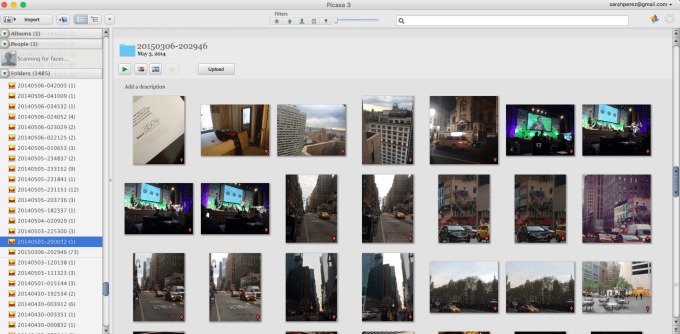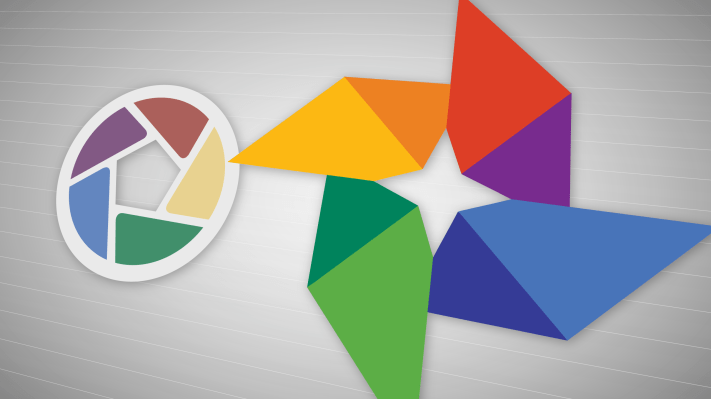It hasn’t made sense for Google to continue to invest in two separate photo storage and sharing applications, as it has been doing with the newer Google Photos and the dated software Picasa. And now the company is finally going to do something about that: Google announced this morning that it will no longer support the Picasa desktop application as of March 16, 2016. In addition, it will be archiving Picasa Web Albums data at a later date while encouraging those users to convert to Google Photos instead.
It’s clear that Google is concerned about backlash from its devoted user base who still relies on Picasa, given the tone of today’s announcement. The company emphasized how much time it has invested in making sure it makes the transition as painless as possible for end users.
“We know for many of you, a great deal of care has gone into managing your photos and videos using Picasa—including the hours you’ve invested and the most precious moments you’ve trusted us with,” writes Anil Sabharwal, Head of Google Photos on a blog post. “So we will take some time in order to do this right and provide you with options and easy ways to access your content,” he added.
For those who are using the Picasa desktop application, it will continue to work as it does today – and if you choose to download it before the shutdown date of March 16, that will also be the case. However, the software will no longer receive future updates.
To be fair, the software hadn’t been updated much as it was – the desktop app may have received minor tweaks, security patches and bug fixes, but its overall user interface is incredibly dated. It looks much like it did years ago.

For those who want to make the switch to Google Photos, there’s a desktop uploader app available at photos.google.com/apps that can be used going forward.
Meanwhile, there’s likely more concern from users about the data collected on Picasa Web Albums, which includes very specific metadata about their photos. Specifically, users may have tagged their photos for organizational purposes, as well as added captions. Friends and family may have commented on some photos, as well. It doesn’t sound like that metadata has made the transition to Google Photos, however.
Google notes that the easiest way to access, modify and share the content from a Picasa Web Album is to log into Google Photos, as photos and videos will already be there for you, automatically.
But some Picasa Web Albums users don’t want to join Google Photos for whatever reason. Google is practically going out of its way to address their needs, saying that it will create “a new place for you to access your Picasa Web Albums data.”
There aren’t a lot of details about this new place yet, except that it will offer users tools to “view, download, or delete” your Picasa Web Albums. However, it won’t allow users to create, organize or edit albums – to do that, they would have to move to Google Photos or some other program.
This part of the transition is coming after the end date for Picasa on the desktop, as Google says it won’t start rolling out these changes until May 1, 2016.
Google notes that it will also retire some functions of the Picasa API, affecting developers.
It’s somewhat surprising that it has taken Google this long to end support for Picasa, given how much more advanced and functional its newer Google Photos product is today.
In fact, every time Picasa experienced a glitch and the Web Albums product would go down, I would ask Google if it had killed the service at last. Google spokespersons would always say “no.” Even as late as last summer, the company touted its devotion to the product, telling me that “Picasa continues to be part of our overall Photos offering, and we’ve worked hard to make sure that almost everything you do in Picasa is compatible with Google Photos.”
That line of thinking, obviously, has now changed.
But it does speak to what must be a still-sizable user base using Picasa software and its online albums – and when it comes to users who cling to dated products, it’s not likely they’ll be fans of this change.
